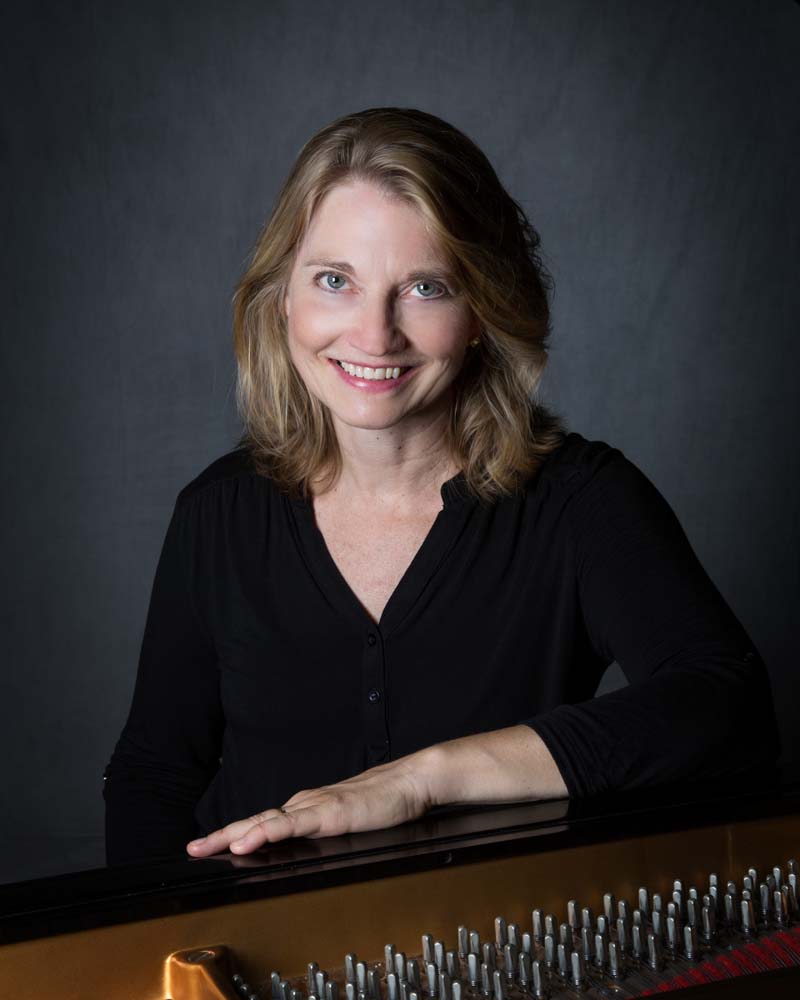BFA, State University of New York–Purchase. MM, The Juilliard School. Pianist, winner of Artists International Young Musicians Auditions; New York recital debut at Weill Recital Hall at Carnegie Hall. Member of New York Chamber Ensemble; performed with International String Quartet, Musica de Camera, Da Capo Chamber Players, Colorado String Quartet, American Symphony Orchestra, Columbia Artists’ Community Concerts. Broadcasts include PBS’s Live From Lincoln Center and NPR in New York and San Francisco. Recorded for ERM Records and Albany Records. Faculty member, Bard College, 1997-2006. SLC, 2008–
Undergraduate Courses 2024-2025
Music
Chamber Music
Component—Year
MUSC 5370
Various chamber groups—from quartets or quintets to violin and piano duos—are formed each year, depending on the number and variety of qualified instrumentalists who apply. Groups will have an opportunity to perform at the end of each semester in a chamber music concert.
Faculty
Keyboard Lab
Component
MUSC 5382
This course is designed to accommodate beginning piano students who take Keyboard Lab as the core of their Music Third. This instruction takes place in a group setting, with eight keyboard stations and one master station. Students will be introduced to elementary keyboard technique and simple piano pieces.
Faculty
Music Workshops and Open Concerts
Component
Music workshops are an opportunity for students to perform music that they have been studying in an informal, supportive environment. In this class, participants will present a prepared piece and receive constructive feedback from the instructor and other students. Along with the specifics of each performance, class discussion may include general performance issues such as dealing with anxiety, stage presence, and other related topics. Each term will consist of three workshops, culminating in an open concert that is a more formal recital at the end of each semester. The entire SLC community is welcome and encouraged to participate.
Faculty
Theory I: Materials of Music
Component—Year
MUSC 5105
In this course, we will study elements of music such as pitch, rhythm, intensity, and timbre. We will see how they combine in various musical structures and how those structures communicate. Studies will include notation and ear training, as well as theoretical exercises, rudimentary analyses, and the study of repertoire from various eras of Western music. This course will meet twice each week (two 90-minute sessions).
Faculty
Previous Courses
Music
Chamber Music
Component
Various chamber groups—from quartets or quintets to violin and piano duos—are formed each year, depending on the number and variety of qualified instrumentalists who apply. There are weekly coaching sessions. At the end of the semester, groups will have an opportunity to perform in a chamber music concert.
Faculty
Keyboard Lab
Component
This course is designed to accommodate beginning piano students, who take the Keyboard Lab as the core of their Music Third. This instruction takes place in a group setting with eight keyboard stations and one master station. Students will be introduced to elementary keyboard technique and simple piano pieces.
Faculty
Music Workshops and Open Concerts
Component
Music workshops present an opportunity for students to perform the music that they have been studying in an informal, supportive environment. In this class, participants will present a prepared piece and receive constructive feedback from the instructor and from other students. Along with the specifics of each performance, class discussion may include general performance issues, such as dealing with anxiety, stage presence, and other related topics. Each term will consist of three workshops, culminating at the end of each semester in an open concert that is a more formal recital. The entire College community is welcome and encouraged to participate.
Faculty
Theory I: Materials of Music
Component
In this introductory course, we will study elements of music such as pitch, rhythm, intensity, and timbre. We will see how they combine in various musical structures and how those structures communicate. Studies will include notation and ear training, as well as theoretical exercises, rudimentary analyses, and the study of repertoire from various eras of Western music.
Faculty
- Paul Kerekes
- Bari Mort
